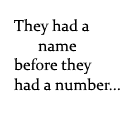Good day all,
I usually fill this space with tips and tricks for my favorite war games and tournament updates but I wanted to take a second to call something out about our increasing desire for this kind of entertainment. TL;DR, I’m personally thanking those in military uniform, on and off the battlefield, for their services and dedication.
Whenever you see a war movie, any one of them really, you often see it from a perspective of a dozen or so individuals. A narrative of a squad or a company of soldiers who go on and accomplish a significant task. Unfortunately, this isn’t a fairy tale where the soldiers all return home as heroes to their families. No, many won’t return at all and it is that level of dedication that defines a person. Even those who do survive the conflict will come back to a strange world, one that they may hardly remember. The experiences that these men and women have endured will affect them forever and it would be naive to think that it didn’t.
The war games that I’ve been playing since I was 4 certainly invested heavily in removing the names and replacing their identification with generic terms. ‘Mini-Gunner’, ‘Light Tank’, ‘Engineer’, ‘Medic’ were all terms that replaced names. Names like Nathan, Jacob, Sarah, Thomas, Steven, Kelly, Rachel, Joshua, Kyle, Josephine, Frenkie, Zachary, John and even their last names were removed. There is a sense of detachment when you give orders to assault the enemy compound when it is given to ‘Soldier#17’ rather than Charles Townes. This sense of making the relationship no longer personal is what makes the game playable. Families, relationships and lives aren’t taking into this consideration, dehumanizing the value of this unit that was once person.
This goes one step further with the terms that have been used to describe what happens to these individuals after the conflict is over. Describing what a soldier was enduring (during World War I) used to be referred to as ‘Shell Shock’, a condition caused when one is exposed to bombing, artillery shelling and gun fire for an extended period of time. This reaction to this condition gives the individual an uneasiness, loss of apatite, inability to sleep or eat or walk, cloudy judgement and in many cases, a constant fear and panic. The words ‘Shell Shock’ really paint a picture of what the condition entails and even a civilian can understand that it may be an unsettling experience.
Now, fast forward a few decades and even that term ‘Shell Shock’ and the condition itself has been made more and more distant. During World War II the phrase ‘Combat Exhaustion’ or ‘Combat Fatigue’ was used to refer to the same condition. Then, decades later, the phrase ‘Post Traumatic Stress Disorder’ was coined. See a pattern here? Even as a culture the phrase has been watered down so far that the human element has almost been completely removed. Suffering from ‘Combat Exhaustion’ just sounds like someone is tired and not the more accurately diagnosis that they have seen death and are forever altered by it. Take this one step further and with the addition of the word ‘disorder’ the blame now sounds to have shifted from the conflict to the individual, meaning it is the persons fault that an extended duration in a violent environment made them feel different.
There is nearly an epidemic in the United States alone in which VETs (veterans) and VFWs (Veterans of Foreign Wars) are not receiving the care (both medical and psychological) that they deserve and have very well earned. These men and women have signed a commitment to serve their country, mind and body, and have paid a heavy price for their dedication. It is our responsibility to not only acknowledge this, but also take action. As a culture, we need to be thankful for the freedoms that we have as it is because of these individuals that it is possible.
Let’s summarize this, shall we? If you know a VET, thank them for their service as it is now our time to serve them. If you have time volunteer or search and contact a VFW lodge and ask how you can help. As our culture dives more and more into virtual realities and our desire for more intense experiences grows, don’t forget that in every war game you’ve played, there was a name to that person before there was just a number. I don’t mean to bring a sad sense to this topic, but an understanding that this is something that we as civilians can take for granted at times.
Thanks for your time, and I hope this helped you see this matter in a different light.
– John Megacycle

Comments are closed.